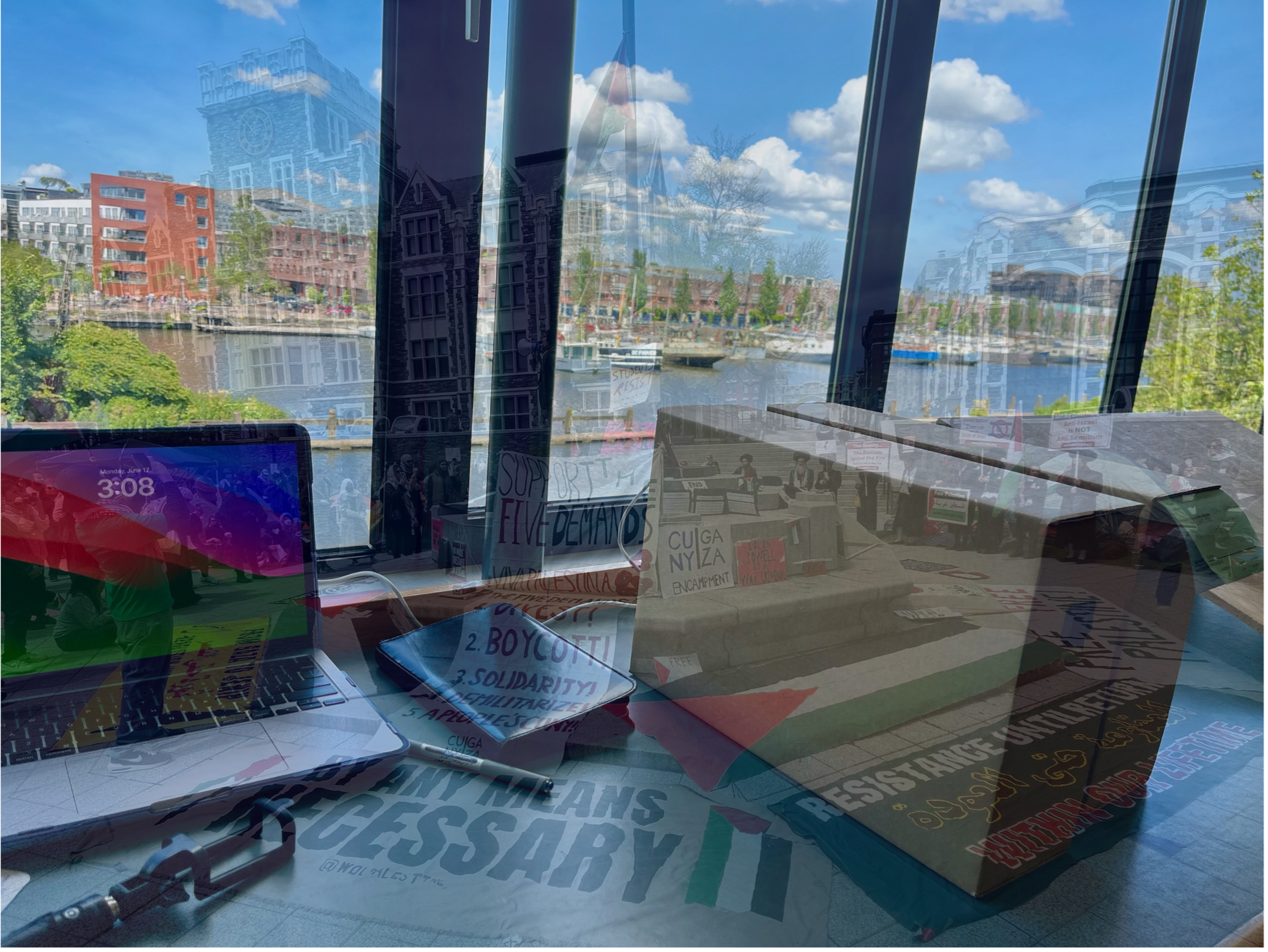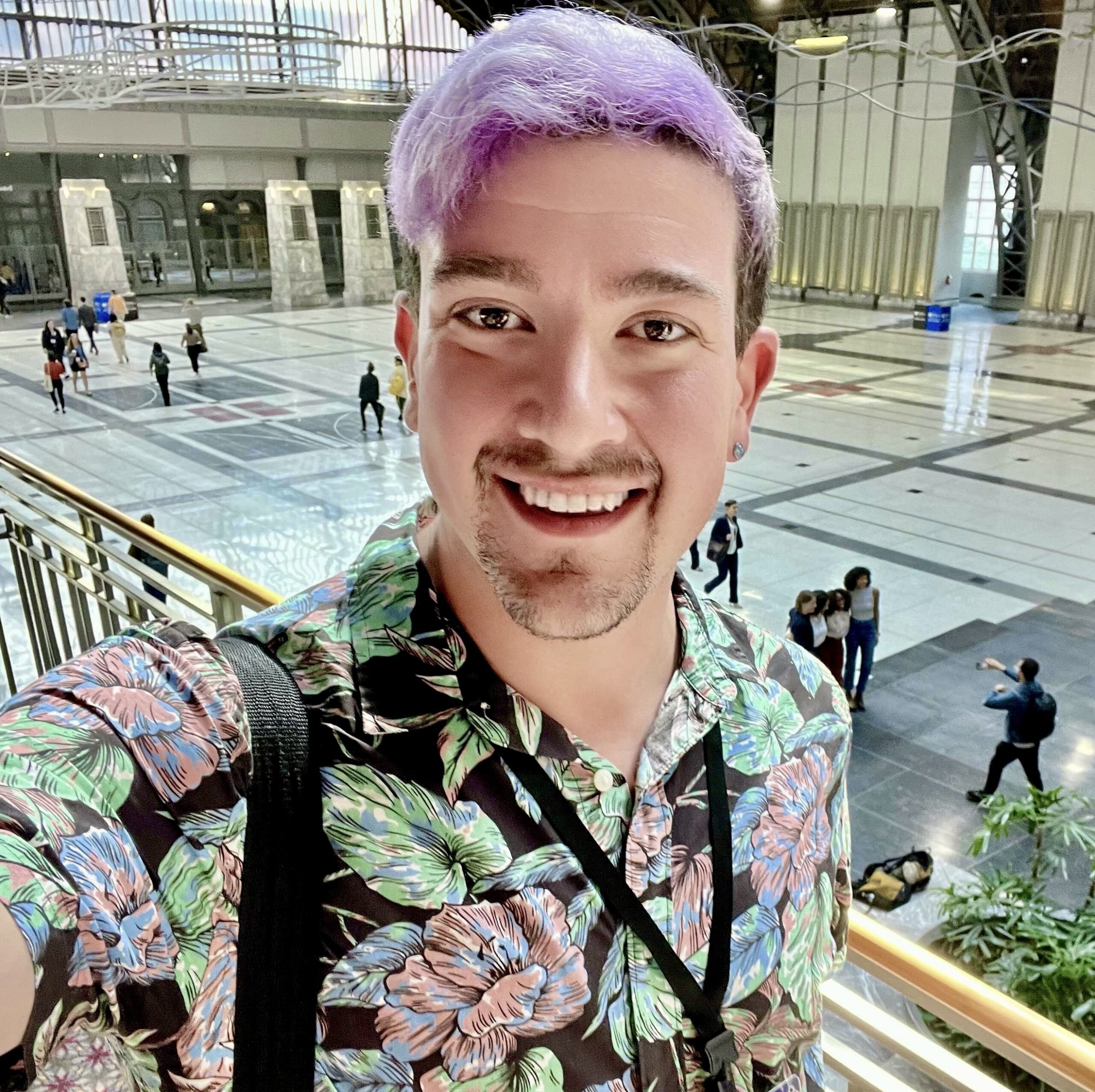Out of the Streets and into the Stacks?: Studying the Past in a Genocidal Present
May 27, 2025

It’s easy to romanticize: two quiet weeks perusing the archives with the sunset over the canals to light my walks home. While the reality wasn’t always quite so romantic—hours of mindlessly propping up my phone to take document photos—Amsterdam was nevertheless a wonderful, memorable experience supported by an ERI/ PS2 summer fellowship.
Hard to believe that just a month earlier, I was in the thick of the CUNY Gaza Solidarity Encampment. For six exhilarating days, hundreds of us skipped Spring Break to camp at City College for divestment from genocide. We held poetry readings, art builds, and teach-ins (including one I provided about zionism and Jewish history), all in service of building a world without oppression.
In that Amsterdam archive, the encampment sometimes felt like a distant memory. But it remains present for the eight who, at writing, are still fighting trumped-up felony charges. The genocide, too, remains ever-present in Gaza. I wanted to be back in the streets. It felt frivolous to study the past with a genocide happening in the here and now. But I reminded myself that archival research, when accountable to on-the-ground organizers, is profoundly political. We learn from history to avoid repeating it.
In that vein, I ask: Why haven’t the workers of the world united? Why have oppressed people so often chosen complicity over solidarity? And what role can we all play in coalitions for justice and liberation? While these issues are not new, sustained attention is. Today, concepts like intersectionality and cyclical violence help account for ways that, as the saying goes, “hurt people hurt people.” And it’s more relevant than ever when, in Palestine/Israel, once-victims of genocide now perpetrate it.
To explain cycles of oppression, I compare how archival representations perpetuate violence across global LGBTQ movements and Jewish communities. My personal experience as a gay Jew and my preliminary research suggest that both communities exhibit contradictions that encourage leaders to embrace elite figures and norms at the expense of BIPOC, transgender people, Palestinians, women, and others.
Exposing the oppressive dimensions of our movement histories will, I hope, enable organizers and scholars to better identify and resist them going forward. Concretely, this will mean challenging transphobia and racism in our LGBTQ spaces, divesting our Jewish communities from institutions that weaponize our trauma, and reinvesting in safety through solidarity. To paraphrase Audre Lorde, only when we put down the master’s tools can we finally dismantle the master’s house.
Author

Andrew Shapiro
PS2 Public Research Fellow
Andrew Shapiro is a Ph.D. candidate in sociology. His dissertation, Hurt People Hurt People, uses archival case studies of LGBTQ movements and Jewish communities to illuminate and counteract tendencies for marginalized people to elevate themselves through complicity in the oppression of others.
